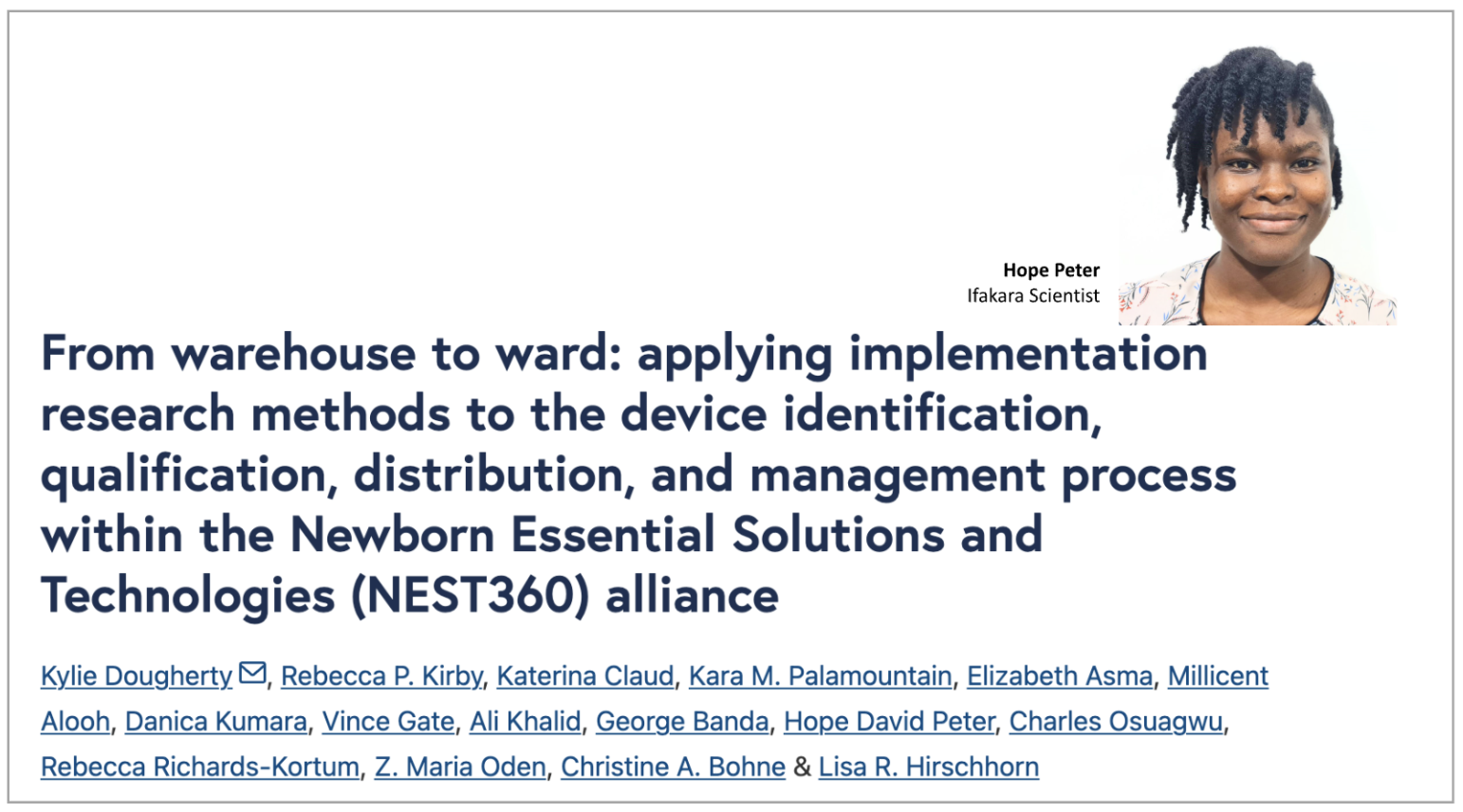
CHILD HEALTH: Saving newborn lives with better access to equipment

A new study shows that having the right medical devices in health facilities can prevent countless newborn deaths. Yet across many low- and middle-income countries, hospitals struggle with equipment that is missing, not suited for local conditions, or broken. Without the right tools, newborns who need urgent care face a higher risk of dying.
The NEST360 international alliance is addressing this gap head-on. The program identifies essential newborn care devices, ensures they are adapted for local use, builds strong supply chains, trains healthcare staff, and maintains the equipment through skilled biomedical technicians.
NEST360 is currently active in Kenya, Malawi, Nigeria, and Tanzania — equipping hospitals with the right tools to give every newborn a fighting chance at life.
NEST360 implementation in Tanzania
In Tanzania, the Ifakara Health Institute is the lead implementing partner for NEST360, working with hospitals in the country to identify equipment needs, deliver and install approved devices, and train healthcare workers and biomedical technicians to operate and maintain them. Currently, the program is in Phase 2, focusing on scaling up the program to more hospitals and strengthening long-term maintenance systems.
Study sheds light on challenges and solutions
Between March and July 2024, researchers interviewed NEST360 team members and analyzed program data to better understand what works and what gets in the way. They identified 40 factors affecting success — most of them barriers (78%) such as slow supply chains and shortages of trained staff.
Strong results on the ground
To tackle these challenges, the program applied 21 strategies, from engaging key decision-makers to ongoing training sessions. The results are promising:
- 29 types of newborn care devices have been approved for use.
- All 66 participating hospitals received NEST-approved equipment.
- In 2024, 87% of newborn care devices were working — whether supplied by NEST360 or from other sources.
- Over 2,400 devices were installed in 2023 alone.
- Technicians and hospitals reported positive experiences using the equipment.
A model for expansion
Published in BMC Global and Public Health, the study concludes that NEST360’s multi-pronged approach is effective — ensuring newborn care facilities have the right tools, and that they remain functional over time. Lessons from the program can be used to expand the model to more places and save more newborn lives.
“This study highlights how NEST360 successfully implemented and maintained functional medical devices in resource-limited settings by addressing key contextual factors through targeted strategies,” noted the authors.
“The findings from this work will inform the scale-up of NEST360 device activities and can be used as a blueprint by other programs in resource-constrained healthcare systems globally,” they added.
Study led by global experts
The research was led by experts from Northwestern University, with Kylie Dougherty serving as the lead author. Contributors included scientists from Rice360 Institute for Global Health Technologies, Hatch Technologies, Kamuzu University of Health Sciences, APIN Public Health Initiative, and Ifakara Health Institute. Hope Peter from Ifakara made key contributions to collecting and interpreting the data, working closely with colleagues across the partner institutions.
Read the publication here.
